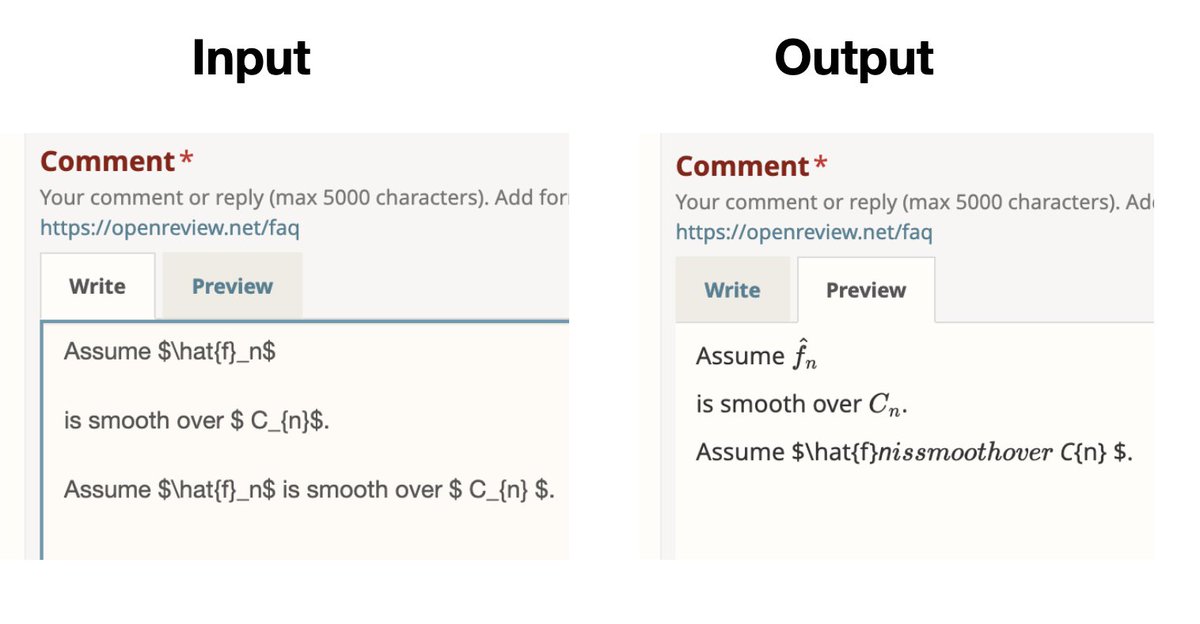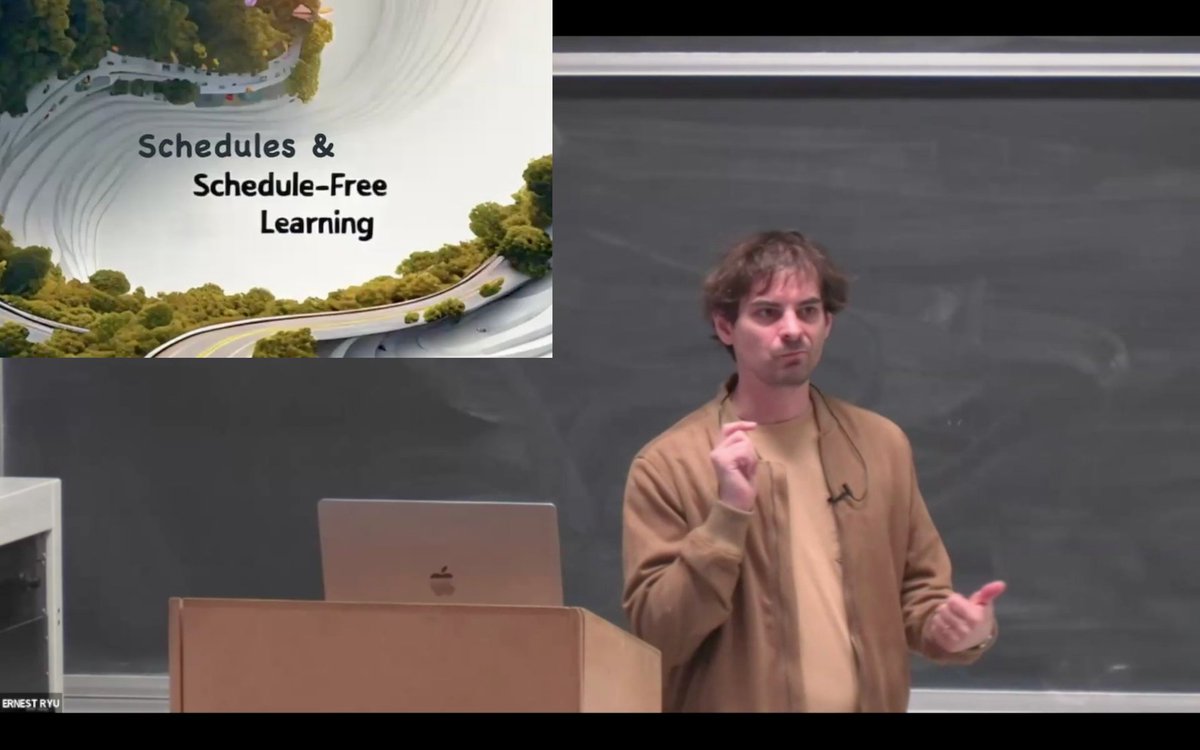
Konstantin Mishchenko
@konstmish
Research Scientist @AIatMeta
Previously Researcher @ Samsung AI
Outstanding Paper Award @icmlconf 2023
Action Editor @TmlrOrg
I tweet about ML papers and math
ID: 1272954231721426945
http://konstmish.com/ 16-06-2020 18:08:40
606 Tweet
5,5K Followers
605 Following

OpenReview's LaTeX parser seems to be quite bad and it makes it very painful to be a reviewer sometimes. For example: "Assume $\hat{f}_n$ is smooth over $ C_{n}$" can be parsed only if it's split into two paragraphs, which makes no sense. Can you please fix this? Open Review


Shuvomoy Das Gupta (Columbia) and I (UCLA) are starting an optimization seminar series! Our first speaker, Aaron Defazio (Meta), presented Schedules & Schedule-Free Learning. Aaron will give his NeurIPS 2024 Oral work next week. This is a longer version. (Video link in reply)





















